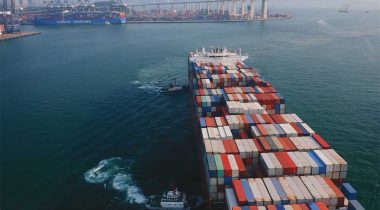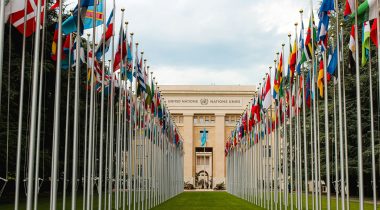
Naomi Fowler ■ #10yearsafter the Crash: looking back at BBC coverage

When considering the lessons learnt and still to be learnt ten years after the Crash, it’s worth reminding ourselves of research conducted into public broadcaster the BBC’s famed impartiality through a major content analysis study conducted by academics at the Cardiff University School of Journalism, Media and Cultural Studies. Dr Mike Berry wrote an article two years ago on their findings which is worth revisiting as we reflect on that catastrophic series of events.
The Cardiff research refuted often repeated claims that the BBC is ‘left-of-centre’, ‘pro-EU’ and ‘anti-business’. In fact they found a clear bias the other way in terms of Euroscepticism and airtime allocated to political parties. And of particular significance to the tenth anniversary of a Crash that has wreaked havoc across the world is the BBC’s coverage of business and the Crash itself. Some of the key qustions are: who did they select to discuss and analyse those events? And is the media in general making the same mistakes today when it comes to reporting on economic and financial affairs?
What the Cardiff University researchers found is that there was over-representation of business representatives on the BBC relative to other networks. And trade union interviewees in particular were totally outnumbered:
“In both 2007 and 2012, across all programming, business representatives received substantially more airtime on BBC network news (7.5% and 11.1% of source appearances) than they did on either ITV (5.9% and 3.8%) or Channel 4 News (2.4% and 2.2%). When we compare the representation of business with that of organised labour, the findings are even more striking. On BBC News at Six, business representatives outnumbered trade union spokespersons by more than five to one (11 vs 2) in 2007 and by 19 to one in 2012.”
Perhaps even more interesting is the research on the sources selected for interview in coverage during the six weeks following the Lehman Brothers collapse by the BBC’s flagship news programme the Today programme on BBC Radio 4. This says it all:
 And the article goes on to point out,
And the article goes on to point out,
“The range of debate was even narrower if we examine who the programme featured as interviewees in the two week period around the UK bank bailouts…opinion was almost completely dominated by stockbrokers, investment bankers, hedge fund managers and other City voices. Civil society voices or commentators who questioned the benefits of having such a large finance sector were almost completely absent from coverage. The fact that the City financiers who had caused the crisis were given almost monopoly status to frame debate again demonstrates the prominence of pro-business perspectives.”
It’s clear that BBC coverage on economics and financial affairs has made little, if any, progress, dominated as it is by orthodox economic thinking and business lobbies that remain truly stuck in the past. There’s been little questioning of the many faulty assumptions and economic theories that still underlie the voices citizens are hearing on the mainstream media. There’s been no systematic challenge to the way economies, risk and value is measured.
Voices from the finance sector should not be dominating the coverage of any media outlet and where they continue to do so, it’s a clear indicator of just how much more needs to be done to ‘mainstream’ new economic ideas. That’s why projects such as #10YearsAfter are so important. There’s a huge body of researchers, economists, experts and analysts with very different perspectives for the BBC, and for that matter, any other media to choose from. But generally, the BBC either totally or largely excludes such voices and, in doing so, shows a systematic bias in the direction of orthodox neoliberal thinking and values.
If you’d like to learn more about the Tax Justice Network’s counter-narrative, our research is supported by our hands-on production materials:
- we offer monthly podcasts and radio shows which have audiences in over 130 countries – the Taxcast in English, the Spanish Justicia ImPositiva and we’re currently setting up a monthly Arabic radio/podcast service.
- John Christensen has co-produced the excellent new film The Spider’s Web: Britain’s Second Empire, which you can see in September by the way, if you’re in London. If not, check out the website for details on how you can see the film or organise a screening. Subtitles for the film are coming soon in several languages. John’s now working on the next film which will look at the Finance Curse and the disastrous race to the bottom between nations on tax and regulation.
- We’re working on more video shorts like this one on key concepts which we feel people are too often just not going to hear about on the mainstream media.
Related articles

The elephant in the room of business & human rights
The elephant in the room of business & human rights
UN submission: Tax justice and the financing of children’s right to education
14 July 2025

How the UN Model Tax Treaty shapes the UN Tax Convention behind the scenes
The 2025 update of the UN Model Tax Convention
9 July 2025
One-page policy briefs: ABC policy reforms and human rights in the UN tax convention

Bad Medicine: A Clear Prescription = tax transparency
Tax justice pays dividends – fair corporate taxation grows jobs, shrinks inequality

Reclaiming tax sovereignty to transform global climate finance
Reclaiming tax sovereignty to transform global climate finance
16 June 2025



The BBC needs to interview people from Tax Justice.